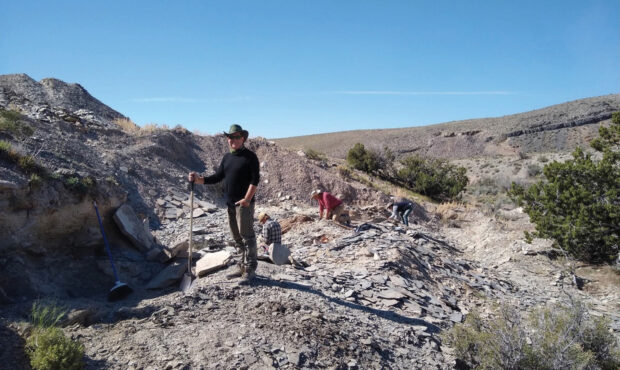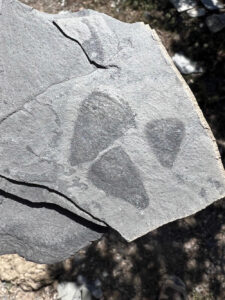Ever since his mother gifted him a Trilobite fossil at age 5, Edwin F. and Martha Hahn Professor of Geology Robert Gaines has been fascinated with hunting for history.
His latest quest, this one in western Utah, turned up dozens of specimens of a new species of sea sponge estimated to be half a billion years old—one of Earth’s earliest animals. And it’s named Polygoniella turrelli after James Turrell ’65, creator of Dividing the Light, the Skyspace at Pomona.
This fall Gaines and colleagues from Harvard University described the new species in a paper published in the journal Royal Society Open Science.
The discovery is the result of three years of research conducted on a fossil-rich mountainside in Utah, where layers of shale preserved the specimens.
“Because there was preservation of the organic material, rather than a skeleton or a shell, it’s kind of an extraordinary view,” says Gaines, current acting president of Pomona. “This is at the time when animals first diverged from single-celled ancestors, so we are able to capture what the early family tree of all the animals looked like and understand how the big branches in the animal family tree are related.”
As he pieces together periods of time by exploring new ground and investigating both rocks and fossils, Gaines finds the more he learns, the more questions he has about the history of life. But he remains thrilled to link extraordinary fossils to prehistoric times in his eternal quest to understand the environment in which living things existed.
“For me,” he says, “it’s about the nature of the earliest ecosystems of our own ancestors and their relationship to the Earth system and how they fed on each other. As a student, I recall well the long periods of confusion. But in retrospect I’ve found that I’ve never really learned anything cool without being confused for some period of time first.”


